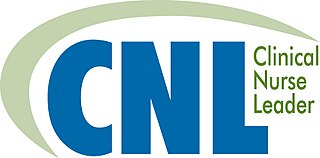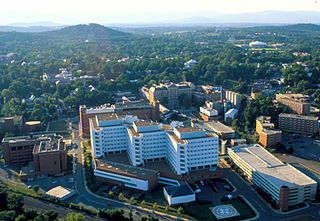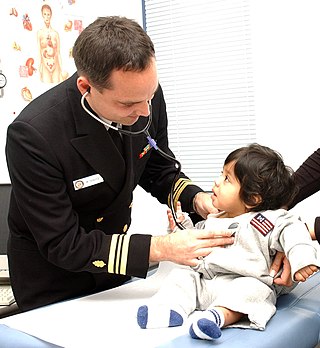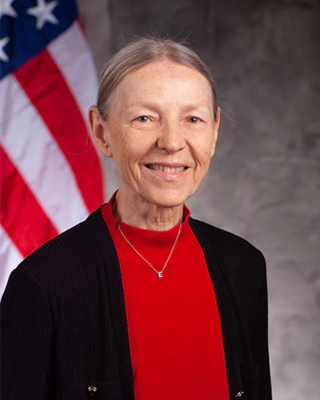
The Sigma Theta Tau International Honor Society of Nursing (ΣΘΤ) is the second-largest nursing organization in the world with approximately 135,000 active members.
The Doctor of Nursing Practice (DNP) is a professional degree in nursing. In the United States, the DNP is one of three doctorate degrees in nursing, the others being the research degrees PhD and the Doctor of Nursing Science. The DNP program may often include additional clinical/residency hours, some as many as 500, as well as a DNP Capstone/Final project which is usually a clinical practice research project that is often implemented through direct clinical nursing care in an effort to improve healthcare outcomes. The DNP Capstone/Final project reflects the scope of the student’s doctoral level work, with a short goal program of demonstrating mastery of study the often student’s online newly acquired skills and knowledge.
Nursing credentials and certifications are the various credentials and certifications that a person must have to practice nursing legally. Nurses' postnominal letters reflect their credentials—that is, their achievements in nursing education, licensure, certification, and fellowship. The letters usually appear in the following order:
Claire Mintzer Fagin FAAN is an American nurse, educator, academic, and consultant. She has a bachelor's degree in science from Wagner College, a master's in nursing from Columbia University and a Ph.D from New York University, all in New York City. Fagin’s major contributions to psychiatric nursing, nursing education and geriatric care were always underlined with a strong belief in the power of the activist consumer. As a result of her work to change hospital visiting policies, Fagin is considered to be one of the founders of family centered care and is the first woman to serve as president of an Ivy League university.
The University of Virginia School of Nursing, established in 1901, is a school of nursing education. It has an enrollment of approximately 800 students, and is consistently rated in the top 4% of U.S. nursing schools. After the retirement of Dorrie K. Fontaine as the fifth dean of the School, two-term American Nurses Association President Pam Cipriano, a research faculty member at UVA for years, stepped in as interim dean in August 2019.

Clinical Nurse Leader (CNL) is a relatively new nursing role that was developed in the United States to prepare highly skilled nurses focused on the improvement of quality and safety outcomes for patients or patient populations. The CNL is a registered nurse, with a Master of Science in Nursing who has completed advanced nursing coursework, including classes in pathophysiology, clinical assessment, finance management, epidemiology, healthcare systems leadership, clinical informatics, and pharmacology. CNLs are healthcare systems specialists that oversee patient care coordination, assess health risks, develop quality improvement strategies, facilitate team communication, and implement evidence-based solutions at the unit (microsystem) level. CNLs often work with clinical nurse specialists to help plan and coordinate complex patient care.

The University of Virginia Health System is an academic health care center associated with the University of Virginia in Charlottesville. The health system includes a medical center, school of medicine, school of nursing, and health sciences library. The health system provides inpatient and outpatient care and patient education and conducts medical research and education.
Jean Watson is an American nurse theorist and nursing professor who is best known for her theory of human caring. She is the author of numerous texts, including Nursing: The Philosophy and Science of Caring. Watson's research on caring has been incorporated into education and patient care at hundreds of nursing schools and healthcare facilities across the world.

A family nurse practitioner (FNP) provides continuing and comprehensive healthcare for the individual and family across all ages, genders, diseases, and body systems. Primary care emphasizes the holistic nature of health and it is based on knowledge of the patient in the context of the family and the community, emphasizing disease prevention and health promotion.
Lisa Hopp is Dean and Professor of nursing at Purdue University Northwest. She founded and directs the Indiana Center for Evidence-Based Nursing Practice: A Center of Excellence of The Joanna Briggs Institute.
The American Association of Colleges of Nursing (AACN) is a national organization of nurses in the United States that is dedicated to advancing nursing education. It was established in 1969, and represents nursing schools at 865 universities and colleges in the United States.
Marlene F. Kramer was an American nurse, educator and author. She wrote a 1974 book, Reality Shock: Why Nurses Leave Nursing, which examined burnout in the nursing profession. Her book has been widely cited in subsequent studies on retention and satisfaction within nursing.
Nursing is the largest healthcare profession in the United States, with more than 3.1 million registered nurses. Between 2012 and 2022, employment for nurses is projected to grow by 19 percent, which is more than any other profession. Nurses make up the largest component of staff in hospitals but are also able to provide care in clinic settings, patient's homes, schools, nursing homes, public health agencies, and mental health centers. In addition, nurses can be found in the military, in industry, nursing education, and do health care research. Nurses in these various roles and settings can provide direct patient care and case management, but also develop and establish nursing practice and quality standards within complex healthcare systems. As each degree can provide a different level of care for patients and function in vastly different roles, it is important to differentiate between them. The levels of nursing degrees have different educational requirements, licensure, and credentialing that can vary state to state.
Fiona Mary Ross, is a British nurse and academic. She is Emerita Professor in Health and Social Care at Kingston University and an independent governor on the Westminster University Court. Formerly she was Dean at Kingston University and St George's, University of London, and also the director of research at the Leadership Foundation for Higher Education.
Joanne Disch is an American professor ad honorem of nursing at University of Minnesota School of Nursing. She is best known for her contributions improving patient safety, health administration, and nurse-physician relationships.
Bernadette J. Mazurek Melnyk is an American nurse. She is a professor of pediatrics and psychiatry at Ohio State University College of Medicine and dean of the College of Nursing. Melnyk is also the editor in chief of the journal Worldviews on Evidence Based Nursing.

Elaine Lucille Larson is an American infectious disease specialist. As a Professor of Epidemiology at the Columbia University Mailman School of Public Health, she has published four books and more than four hundred articles on the subjects of infection prevention and control, disease epidemiology, and related issues. In 2017, Larson was named a "Living Legend" by the American Academy of Nursing, the Academy's highest honor.

Kate Payne was an American nurse, lawyer, and bioethicist. She was an associate professor at the Center for Biomedical Ethics and Society at Vanderbilt University Medical Center.

Barbara Riegel is an American clinical researcher, clinical nurse specialist, academic, and author. She is a Professor in the School of Nursing at the University of Pennsylvania, a Professor Emerita at San Diego State University, and Co-Director of the International Center for Self-Care Research.






